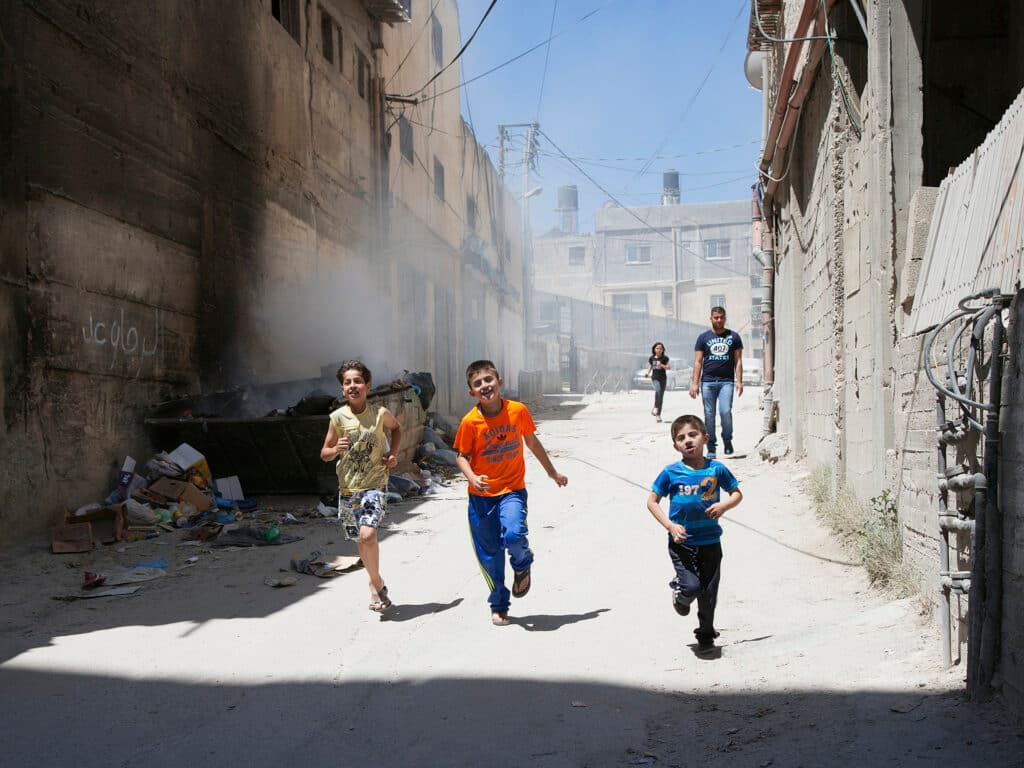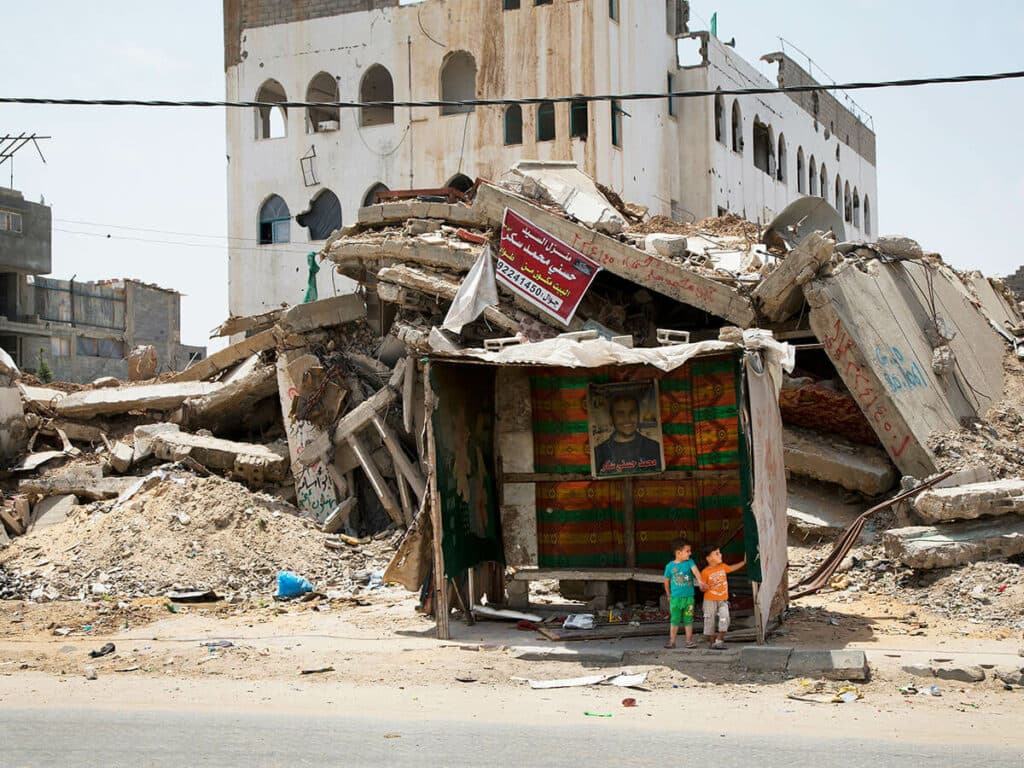
Palestine
The Israeli-Palestinian conflict has been at the centre of world politics for over 60 years. The 1967 war marked the beginning of Israel’s occupation of the West Bank and Gaza Strip. Since then, life in Palestine has been disrupted by Israeli military measures.
Financial instability and dependence on aid
The financial instability and dependence on international aid have grown rapidly. Nearly four out of ten inhabitants between 15 and 24 years of age are unemployed and many live in poverty. Some of the most vulnerable groups include children and youth, women, people with disabilities and refugees.
Diakonia's work in the region concentrates on addressing:
- The lack of peace and security
- Increasing respect for human rights
- Building local democracy
- Eradicating the multidimensional aspects of poverty
More than 40 partner organizations
Diakonia has established partnerships with around 40 Palestinian and Israeli non-governmental organizations that together cover five thematic areas: Democracy, human rights, social and economic justice, gender equality and conflict and justice.
Much of the implementation of the thematic areas has been achieved through the country strategy programme "Palestine Civil Society Development Programme (PCSD)". The programme aims at strengthening local civil society organizations in democracy and human rights, with special focus on strengthening Palestinian children and youth in areas such as creativity, innovation, gender equality, non-violent conflict resolution, religious dialogue, human rights and social and economic justice.
Sub-programmes for the work in Palestine
Diakonia's work in Palestine is divided into sub-programmes, each with its own special focus and purpose.
Supporting Palestinian civil society organizations
Bearing in mind the fragile political, social and economic situation in Palestine, it is crucial to continue working for change that will add value to everyday life of Palestinian people. The closures, restrictions of movement of people and goods, settlements, the Wall, etc. are all contributors to a decline in quality of daily life.
As in all conflicts, children, youth and women are vulnerable parts of the society. In Palestine, children and youth comprise roughly 60 per cent of the population. Most of them experience the full impact of the conflict on a daily basis since they are forced to go through checkpoints in order to get to their schools and universities. In addition to this, they see their parents struggle for survival and often have to work themselves in order to feed the family.
Due to the difficult situation, children and youth are politicized from early stages of their lives.
This is why it is absolutely essential to create possibilities for these new generations to focus on themselves and create possibilities that will put the conflict in a different perspective.
A few success stories from the programme include the establishment of the First Science and Technology House in Palestine by the organization Al-Nayzak, and the Human Rights Prize and Follow the Women for the organization Alternative Information Center's (AIC) work on documenting crimes committed as a result of the occupation.
Improving the human rights situation
Diakonia's humanitarian programme is part of the UN protection cluster. The point of departure is the humanitarian imperative, i.e. that every state has the primary responsibility for meeting humanitarian needs. Humanitarian aid is provided in two closely related forms: material aid and protection.
The programme is focused on increasing protection for the civilian population by respecting and using international humanitarian law in the Israeli/Palestinian conflict.
The concept of protection encompasses all activities aimed to ensure full respect for the rights of the individual in need, in particular the right to physical safety and dignity, in accordance with relevant bodies of law and international conventions. Protection also includes calling attention to the obligations of armed groups, registration of the status of refugees or internally displaced persons and education about rights and obligations under international law.
Diakonia provides education, technical support and information to assist the humanitarian and diplomatic community to find collaborative ways to mainstream and integrate protection into their humanitarian work for the population in the West Bank and Gaza. To do so, we produce educational material and conduct trainings on protection for NGOs, humanitarian organizations and diplomats.

Culture helps children to interpret the world around them
Reading, playing and telling stories teach children how to express themselves and better interpret the world, even when their world is hard to understand. In a library in Ramallah, story time becomes an outlet for children’s emotions.

The library is a second home
Since joining the activities at the Tamer Institute, 17 year-old Celine has got better at standing up for what she thinks – but also at listening to others and accepting their different opinions. The institute has become her safe place, where she can express herself without fear of being judged.


